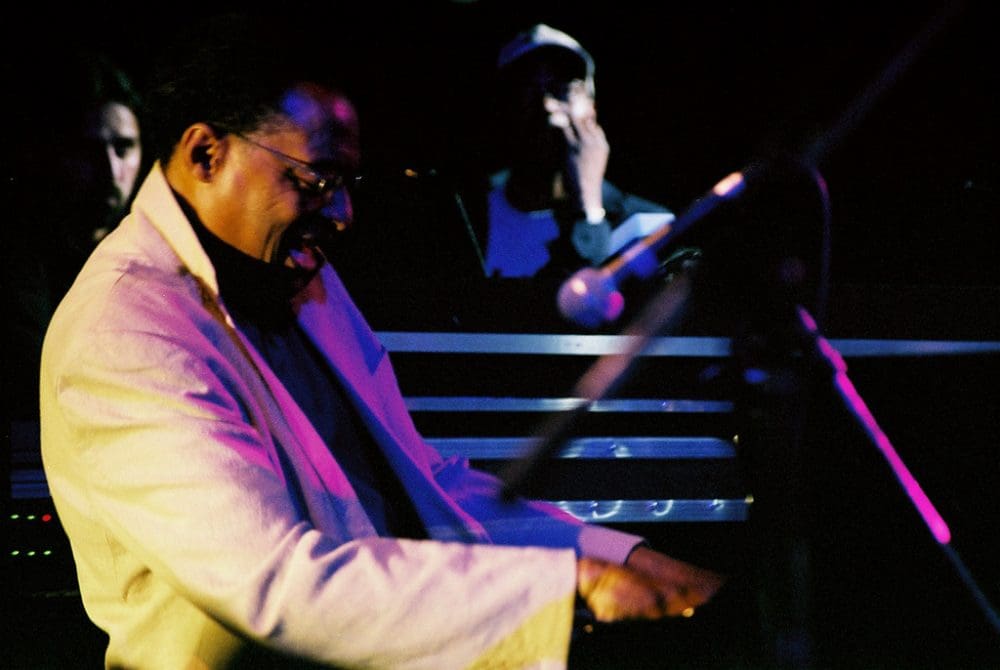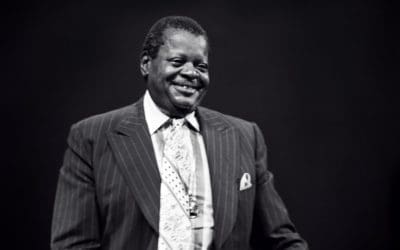I have had the great privilege of working with many extraordinary pianists in my life but none more kind and gracious than Mr. Ramsey Lewis. Most performers like for the piano upon which they are to perform to be tuned prior to their “sound check”, then touched up prior to the doors opening for the performance, and sometimes touched up again at intermission. As a technician, you never really know what you are getting yourself into from one performer to the next even though the piano may never change.
As a general rule, the job of a concert piano technician is to make the piano itself “invisible” to the performer. By that I mean, the performer is attempting to express an endless array of colors and emotions through this massive instrument of 10-12,000 moving parts made of wood, iron, and felt. What could possibly go wrong!? A sluggish damper here, a key slow to repeat there or, God forbid, a squeaky pedal can be a great distraction to the performer and hinder their ability to express themselves. And so, getting the piano to a place of high musical functionality is of utmost importance.
But then, there are other issues such as how bright or mellow should the voicing on the piano sound, to what pitch should A-440 be tuned, how far should the tuning be stretched, and should the piano be tuned to a historical temperament rather than the traditional equal temperament. All of these parameters (and many more) are a matter of personal taste and can vary significantly from one performance to the next. But beyond all of the technical piano issues, a concert technician must address there are the personality, emotional maturity, and state of mind each performer brings to each performance. Psychology 101 proved to be a VERY beneficial college class in this regard!
I recall once preparing our 9’ Steinway for a Christopher O’Riley performance. He spoke very highly of the piano and asked for nothing other than tuning to be done. The very next weekend a young, up-and-coming Asian pianist came to town. She practiced on the exact same piano and left me 28 small blue stickies on notes she felt needed better voicing! Of course, the most important client of any piano is the owner of said piano. This is true no matter who plays it. As a result, it is very important to know what the owner’s preferences and expectations of a piano might be so that as the tech you don’t overcompensate for any one performer’s demands. In general, it would be fair to say that as a rule younger performers are much more anxious about their own skills and often project their insecurities onto the piano or technician they work with whereas a more seasoned mature performer understands each piano is different and must be approached as such.
Ramsey Lewis is a great example of the latter. I last worked for Mr. Lewis on April 3, 2015. Lewis has recorded over 80 albums/CDs, won countless awards, and played with virtually every major jazz artist in the world throughout his 86 years of life (He was born in 1935). As is my custom, I prepared his piano in 2015 and awaited his group to come in and do their soundcheck. I stood backstage listening to this legend work his magic. As always, when their rehearsal was complete I caught Mr. Lewis and asked if there was anything he wanted me to address on the piano. I will never forget his response. He smiled broadly, put his arm on my shoulder, and said, “Playing piano is somewhat akin to dancing with a beautiful woman. My job is to make her look as good as I possibly can.” He turned and walked away. I wish every performer understood their role at the piano in the same way as Mr. Ramsey Lewis.
Image Credit: Ramsey Lewis. (2022, October 7). In Wikipedia.





0 Comments